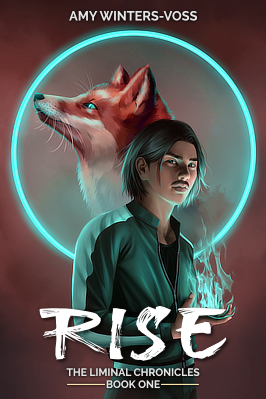Rice Farming with Ducks in the Nonogawa River Valley
(Newspaper article from the Okayama Daily, wirtten by Tanaka Kyoko, February 1)1
A traditional rice farming method is regaining popularity in Japan. Leave it to the local residents in the Nonogawa River Valley to give the technique a couple of unique twists—duckling adoption and the secret of quiet flocks—to help raise their renown regional mochigome organically. The "rice ducks" here have a special place in the hearts of all who see them.
Farmers give a discount on rice from the harvest to those who adopted ducks and helped them get a discount on the rice duck service. In Japan, relationships bloom when there's a benefit to both sides.

Who would have thought humble little ducks could help bring peace and prosperity to a small farming valley?
What advantage do ducks provide for rice farmers?
Japan continues to be among the top agricultural pesticide and fertilizer users in the world. But consumers are turning toward more sustainably grown grocery items and thus opening up a market for crops grown organically. The benefits are twofold. Hungry rice ducks love to gobble up weed seeds, bugs, snails, and slugs. Their droppings provide a natural fertilizer for the rice, too.Do all farmers in the valley have ducks?
Only two families currently manage flocks, the Kishidas and the Hashimotos. But they rotate the ducks through the valley's fields. One for Nonogawa to the North and the other from Nonogawa to the south. Each family has a flock of around 700 ducks. That's a lot of birds! Yes, but don't worry. Every duck is cared for and inspected after an outing in the fields.How does it work?
A farmer places an order then a truck equipped with a special crate will arrive with a flock. Once the head herder opens the gate, the birds waddle down the ramp and swarm the fields. Several herders follow along and use poles with nets to keep the ducks from straying or eating the rice plants. After a day in the field, the head duck herder blows a whistle that only animals can hear and the ducks come running up the ramp and into the truck again.Noise Concerns?
Large groups of quacking ducks can be loud enough to cause complaints to the police. Dealing with the issue is where the Kishida and Hashimoto families have excelled. When the ducks exit the truck, the head duck herd blows a whistle and the ducks go silent. While they say they share the secret between their two families, they won't tell anyone else how they keep the little quackers quiet.Higher cost? Adopt a duck!
Renting duck flocks costs about 3x as much as using chemical pesticides and fertilizers. But local farmers consider the price worth it to provide the best tasting and healthiest sweet rice. To offset the cost, both duck herding families offer a duckling adoption program and share the cost offset with their farmer customers. Those who adopt a duckling receive a photo and yearly report on their duck plus a sampler of rice from the fields the duck visited. (The sampler is only available to those inside of Japan, unless shipping is prepaid.) If someone adopts the duck when it's an egg, they may submit a name for consideration.Farmers give a discount on rice from the harvest to those who adopted ducks and helped them get a discount on the rice duck service. In Japan, relationships bloom when there's a benefit to both sides.
Any religious significances for the Nonogawa River Valley?
As with all spring plantings, farmers in the valley hold a special ceremony and pray to Inari Ookami for a good harvest. In the last few years, the quiet ducks have been allowed to attend too for a blessing for their health and effectiveness. Unfertilized duck eggs accompany the rice offerings each year to Inari Ookami.
Rice by Freepik
What other ways do the rice ducks change the local culture?
Local shrines carry a collectable omamori talisman/charm with a duck and rice plant embroidered on it. For a small suggested offering, you may receive one. Each year, the design changes. Shrines encourage visitors to return the charms at the end of the year, so they can be burned. (The charms protective properties only last 12 months.) Though, shrine visitors keep many of the omamori because they are cute and can be added to a substantial collection of charms. (It's said that if you collect 1000 talismans from shrines, you'll receive a special blessing of protection.)Who would have thought humble little ducks could help bring peace and prosperity to a small farming valley?
Work in Progress
This article will be expanded in the future.
Stub
This article will be expanded in the future.
Definition
This article stub serves as a simple definition.
TEAM SECRETS AVAILABLE
Will you join:or all teams?
When you choose the team with the secret(s) - the secrets(s) will appear. Secrets may not be available for every team on an article.
Be prepared for spoilers
In order to access the team secrets, you will need to be logged in to your World Anvil Account.
























Comments
Author's Notes
1 - fictional newspaper and reporter, added intereste for the article ;) (The few in the know understand the name nods.)connecting it to what I already have in Liminal Chronicles
offerings to Inari
magic use
adoptions!
Realizing organic agriculture to improve both safety and productivity
Shipment of ducklings to eat weeds, pests at rice fields peaks in west Japan
For healthy rice paddies, bring in the ducks
Around 10,000 ducks are sent to eat insects in a rice paddy after harvest in Thailand...
Adopt-a-tea-tree (Something I've been eyeing. Why not ducks too?)
Old Ofuda (the idea where you collect 1000 Ofuda from shrines and the kami will grant you a blessing of protection. I modified this a tiny bit to include omamori.)
Newly added (1/5/2024) - interesting note on the Takao Furuno - the man who perfected duck and rice farming in Japan.
I was pondering what to write about when I saw a lovely real world example. I knew this had to be a thing for the Nonogawa River Valley! Some funs additions include:
* This article was written for Duckuary 2024 contest hosted by Tillerz. Additional References: